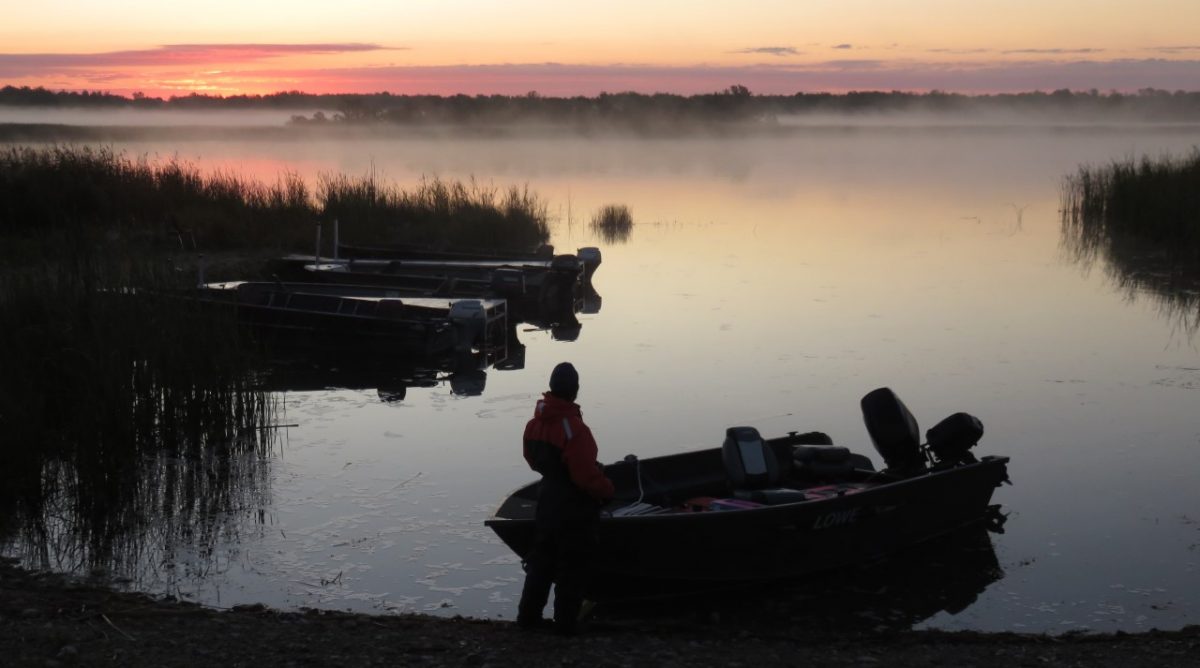
Photo by Dr. Greg McCullough
Water workshop discusses Lake Winnipeg basin and the Nelson River watershed
The Centre for Earth Observation Science (CEOS) in the Clayton H. Riddell Faculty of Environment, Earth, and Resources hosted a virtual workshop about research programs occurring in the Lake Winnipeg basin and Nelson River watershed on March 18, 2021. The event focused on community-driven monitoring and citizen science initiatives. Our intention for the event was to provide a space for participating groups to share information about water quality in the basin. Freshwater quality and quantity are high priorities for Canadians and the Federal Government as shown by the recent workshops and discussions around the development of a Canada Water Agency. One of the goals of the event was to open up communication channels and allow for a greater understanding of our shared freshwater resources.
We must keep in mind that our freshwater is not an endless resource. We have to live with our finite water resources and understand that we are all responsible to keep water healthy and accessible to everyone. Access to clean water is a basic human right, mandated by many countries, including the United Nations. When we discuss water management, we must first and foremost integrate a human rights-based approach, ensuring the rights of individuals and communities are met, and the obligations of industry and organizations are understood.
Freshwater should not be thought of as a separate (or self-contained) issue from the rest of the hydrosphere and cryospheric systems of our planet. The impact of hemispheric and especially Arctic climate on freshwater in the mid and lower latitudes in Canada is integral to understanding how to manage freshwater resources. It’s important for us to understand the effects of climate change directly on the hydrology and water quality within Continental Canada and its relationship to the oceans.
Over the past twenty years, the University of Manitoba has emerged as one of the leading research institutions in the world in the field of Arctic system science and technology. CEOS serves as the focal point for this activity. Its members include leading researchers in land use and management, soil and water conservation, remote sensing, hydrology, landscape ecology, wetland ecology, watershed processes, statistical and modelling techniques, and cross-scale interactions of drivers of water quality parameters. Their experience includes (amongst other regions) research throughout the Nelson River watershed, which spans five ecoregions (Prairies to Subarctic) and four provinces in Canada, and two ecoregions (Great Plains and Northern Forests) and four states in the U.S.
During the Water Workshop, several keynote presentations were delivered by researchers and students from the University of Manitoba. Keynote presentations were also made by representatives from the Manitoba Metis Federation (MMF), Manitoba River Watch, Lake Winnipeg Indigenous Collective, Lake Winnipeg Foundation, and the Institute for Sustainable Development (IISD).
As we move forward with discussions surrounding water governance, we need to work together collectively to improve our communications and provide our research, monitoring, and information publicly, and accessibly, in order to support evidence-based decision making.
For further information about our freshwater research please visit:
https://lwbin.cc.umanitoba.ca/manitoba-great-lakes-program/






